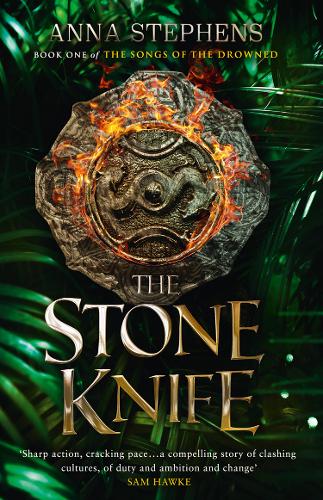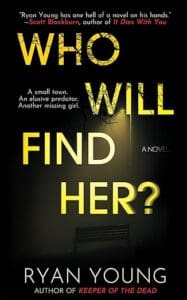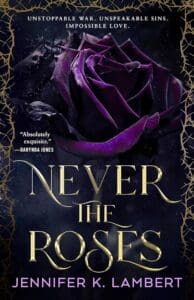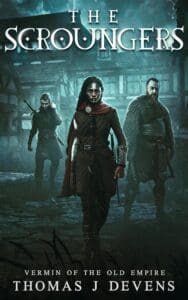Rating: 10/10
Synopsis:
A fantasy epic of freedom and empire, gods and monsters, love, loyalty, honour, and betrayal, from the acclaimed author of GODBLIND.
For generations, the forests of Ixachipan have echoed with the clash of weapons, as nation after nation has fallen to the Empire of Songs – and to the unending, magical music that binds its people together. Now, only two free tribes remain.
The Empire is not their only enemy. Monstrous, scaled predators lurk in rivers and streams, with a deadly music of their own.
Review:
My express and gratiude to Jamie at Harpervoyager for allowing me to access an ARC via Netgalley in exchange for a honest review. My thoughts only.
This is a a dazzling triumph of a new fantasy novel set in one of the most mystical civilizations of this world and I for one, applaud this. Very well written. Exactly the perfect book needed for this time of year. And it is completely different from a Medieval European settings, its Mesomamerica! Finally! This novel has excellent written female protaganists that you will come to love. I loved Xessa a lot more, than Enet for that matter. I tried to sympathise with Enet, but I couldn’t. I couldn’t. You will see why.
The entire continent of Ixachipan became an ever torment mass of fire, fighting and blood. I watched, as an observer, witnessing the events of a fight that would soon engulf everyone. Wars fought for religion. Conflicts started because empires must expand. The cost of innocent lives. War is brutal. And a religion that demands sacrifice to our esteemed Singer and the Song is no less than an evil cult from what I have seen of the Singing City and the Pecha. I like how Anna has described a city of perfection in this novel, and you will witness its unraveling in front of you. You will witness fighting in the Sky City, witness ambushes you have never seen before, and blood will run through this novel.
And never have I felt so much sadness in one book. The shackles of royalty create a growing dark feeling within the Singer himself. That is the only clue I will give. He is a character that you will despise but somewhat sympathize with. Because the most truly evil people weren’t evil in the first place. Circumstances, events, and time presented itself. You may say that the reason the Gods don’t appear anymore in this world, is because of humanity’s free will. Everything is a consequence of human will. If this structure of a story was put in sci-fi and historical fiction, it would fit very well.
That said, I did feel the pacing of the novel could have been a bit faster. I would have had wanted more native-style words of swearing. That would have added a little more immersion in my opinion. The Empire of Songs is a perfect example of what happens when a cult is developed around one figure called the Singer, and that Godhood slowly reveals the madness that the people living in the Empire of Songs are witness to. It is not a perfect empire. It is not an honorable empire. Eventually, all the benefits for their slaves will go to waste at some point. The Empire has a fanatical ability to believe that spreading the Song will bring peace. The people of Tokoban and Yalotan want to be left in peace, but their Council is very arrogant. Very arrogant indeed not to realize the impending threat that the Empire of Song is doing.
And to the characters of this story, I think they are mature enough to understand that they live in a world that is inherently grim-dark to an extent. Mesoamerican society, however, is interpreted from the viewpoint of Monks and not very favourable viewpoints come often. However, there was a Spanish Monk named Bartolomé de las Casas, who arrived in New Spain at the time when the Aztec Empire had ceased to exist. It was he that opposed the coloniser’s brutal efforts of committing atrocities over the local natives of Mexica. An entire story can be written on this hero himself. He owned slaves and then seeing the atrocities that Cortes’s administrators were inflicting, he freed them. He was ahead of his time and it brought the wrath of the Church on him.
Bartolomé often argued in favour of the Native Peoples that were now under Spanish rule, and during a debate in 1550, Juan Ginés de Sepúlveda, a theologian, philosopher, and an active opponent of anti-slavery, argued that the Indians were less than human and they needed the full might of Spanish civilization to master and subjugate them. In this book, you will see a lot of this when it comes to the Empire of Songs believing that they are superior.
Back to this tale, however, Las Casas argued that the Indians were free, fully human, and that subjugation was not only unjustifiable, but it also was immoral and against the word of God. Las Casas would go on to fight 50 years to stop the atrocities inflicted on indigenous peoples, trying to persuade the Spanish Court to adopt the human policy of colonization, and he opposed those priests who sought to destroy the indigenous people’s native books. I have no doubt there were many other prudent administrators, soldiers, priests that supported Las Casas in this endeavor, and hence we still have the preservation of Aztec and Mayan manuscripts and Anna did a lot of research when it comes to the worldbuilding of this culture.
We don’t have enough viewpoints from the Mesoamericans because the Spanish did order their holy texts to be burned. Temples raised to the ground. The Romans destroyed Carthage and razed it to the ground. Often, we get a viewpoint that has to be interpreted from the winner’s point of view. The loser’s viewpoint is harder to study. Does no one remember the valiant efforts of the Gauls against Julius Ceasar? Who is celebrated more, tell me? Julius Ceasar or his Gallic enemies? Julius Ceasar of course. The reason I bring this to attention is the fact that Anna has done a very good attempt at creating an authentic immersive world that is very free of this bias. The themes of colonialism are rife and the theme of subjugation is ever-present in this novel.
And there is the presence of good vs evil. Of good and evil co-operating with each other. The character I began to sympathize with was the Singer. A man that has a tragic crisis in terms of identity. I don’t wish to spoil what happens. Enet was truly, the most despicable character that I hated. She’s a true politician at heart and a wretched soul. You will discover the reasons why. Xessa was a true dragon at her heart. Along with her lover, Toxte. Tayan and Lilla are the central characters and I liked their viewpoints. Tayan because his mystical viewpoint as a Shaman allowed more exploration into the Drowned and who they were. I felt the story detracted from this very exciting character arc, as it had to focus on other viewpoints. In book 2, I would like to see more of this happening. As for Pilos, he’s a man fighting for the wrong side. He is! The fool should realize that the Empire of Songs is crumbling and it will do no good for him! None! None whatsoever! And there’s an enormous cast of characters that you will come to love and despise. You will learn love, loss and revenge very quickly.
For many years, I have wanted a fantasy novel that was set in Mesoamerica. It seems HarperVoyager and the Gods listened to my prayers. This is truly part of an epic novel. It has the hero’s journey to an extent. But it is more than that. It is about the freedom of people from tyranny. The freedom of a free life is crushed by tyrannical rule by those who think they are doing right. Often, we think of ourselves as heroes. Never for once, do we see ourselves as villains? Human nature is fickle. That’s what I felt from this story. Is humanity so fragile that it cannot stop to think for a second that war is pointless? That love, loss, suffering, and grief are the same? That’s what made me think in this novel. Tragic stories but a hint of hope as well.
This was an excellent novel. I give it a 10/10 and I cannot wait to see what happens in book 2!





Leave a Reply